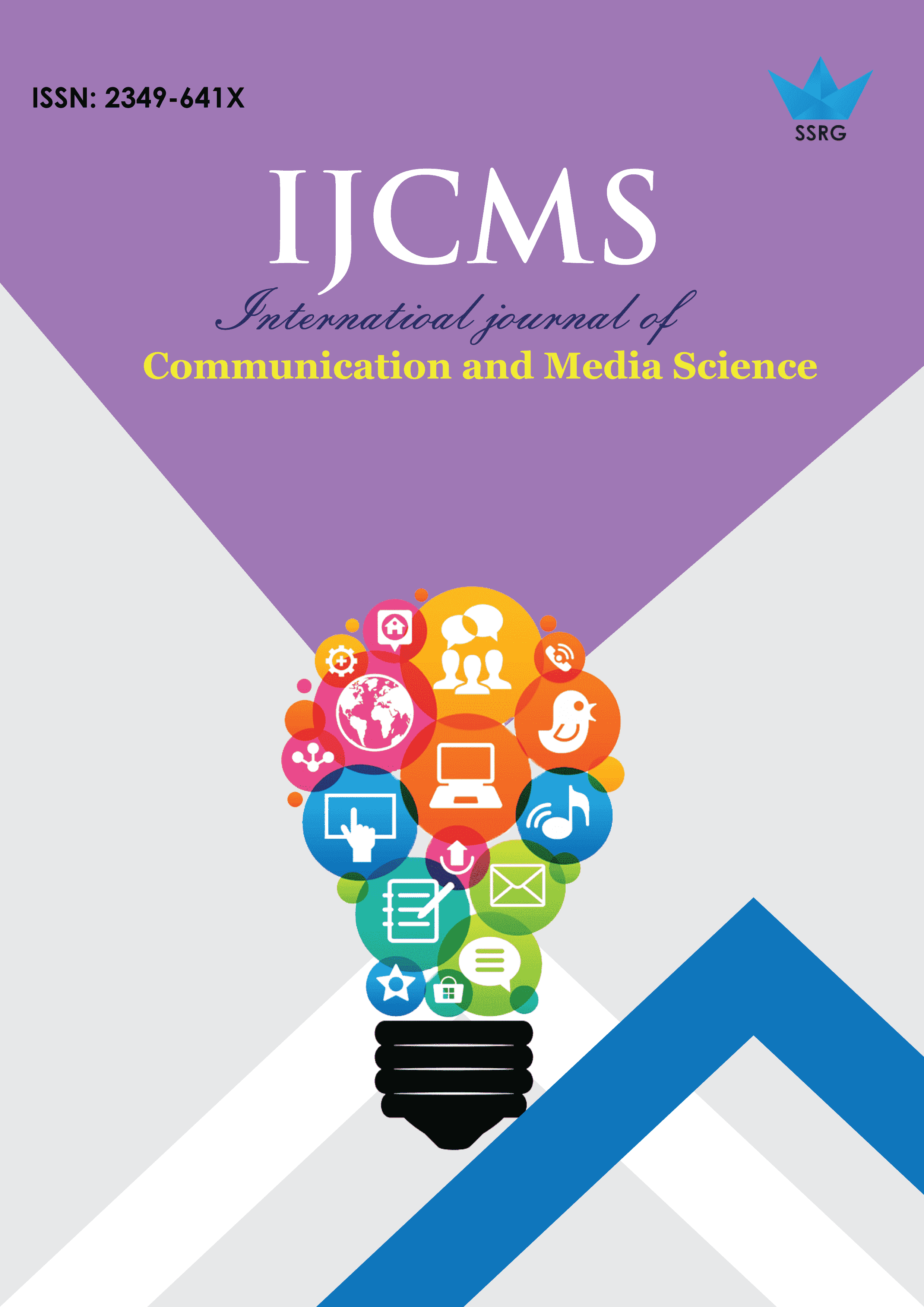Effectiveness of Anambra Broadcasting Service (ABS) Radio News on Teaching and Learning (a case study of Awka based Students)

| International Journal of Communication and Media Science |
| © 2021 by SSRG - IJCMS Journal |
| Volume 8 Issue 2 |
| Year of Publication : 2021 |
| Authors : Okechukwu Christopher Onuegbu |
How to Cite?
Okechukwu Christopher Onuegbu, "Effectiveness of Anambra Broadcasting Service (ABS) Radio News on Teaching and Learning (a case study of Awka based Students)," SSRG International Journal of Communication and Media Science, vol. 8, no. 2, pp. 15-22, 2021. Crossref, https://doi.org/10.14445/2349641X/IJCMS-V8I2P103
Abstract:
This work sought to find out the effectiveness of Anambra Broadcasting Service (ABS) Radio news on teaching and learning. The study focused mainly on listeners of ABS radio news broadcast in Awka, the capital of Anambra State, Nigeria. Its objectives were to find out; if Awka based students are exposed to ABS radio; to discover the ABS radio program students favorite; the need gratification that drives students to listen to ABS radio news; the contributions of radio news to students teaching and learning; and effectiveness of ABS radio news on teaching and learning in Awka. The population of Awka students is 198,868. This is also the population of the study. But a sample size of 400 was chosen and administered with questionnaires. The study was hinged on the uses and gratification theory. It adopted a survey research design. The data gathered was analyzed using simple percentages and frequency of tables. The study revealed that news is very effective in teaching and learning. It was concluded that news is the best instructional media to be employed in teaching and learning. Among other things, it was recommended that teachers and students should listen to and make judicious use of news for academic purposes.
Keywords:
ABS, Learning, Radio news, Teaching
References:
[1] B. J., Al-Mahasneh, The effect of video games on students’ attention in government schools, case of Jordanian Schools, International Journal of Education and Research,7 (2) (2019) 25-36.
[2] O. Anunike and O. Onuegbu, Youth’s exposure and utilization of Internet advertisements in Awka, Anambra State: NAU Journal of Communication and media studies, 1 (2) (2020) 254-265.
[3] E. S. Asemah, Principle and practice of Mass Communication,
Great Publishers, Jos (2009).
[4] Asubeb (2017, December). Names of public and private primary smichools in Awka.http://asubeb.net/new/
[5] G. H. Ezeah, C. E. Asogwa, and O. I. Edogor, Social media use among students of universities in South-East, Nigeria: IOSR Journal of Humanities and Social Science, 16(3) (2013) 23-32.
DOI: 10.9790/0837-1632332
[6] E. B. Familusi and P. O. Owoeye, An assessment of the use of radio and other means of information dissemination by the residents of Ado-Ekiti, Ekiti-State, Nigeria: Library Philosophy and Practice e-journal,1522-0222 (2014).
[7] E. E. Habre and D. Lockwood, Why radio stations may be the real e-learning revolution (2020) December 12. https://restof world.org/2020/africa-radio-e-learning-revolution/
[8] O. C. Onuegbu, The Impact of ABS Radio News on Listeners. An unpublished research project was submitted to the Department of Mass Communication, NOUN, Lagos (2016).
[9] PPSSC (2017). Names of private and public secondary schools in Awka. Unpublished reports obtained from Anambra State Post Primary schools service Commission, Awka.
[10] T. Unwin, M. Weber, M. Brugha and D. Hollow (2017), The future of learning and technology in deprived contexts. London: Save the Children, (2017) 1-58.
[11] UWS, Impact assessment: Radio education program Nepal, United World Schools, December (2020). https://www.unitedwor ldschools.org/blog/understanding-the-impact-of-our-radio- education-program.

 10.14445/2349641X/IJCMS-V8I2P103
10.14445/2349641X/IJCMS-V8I2P103